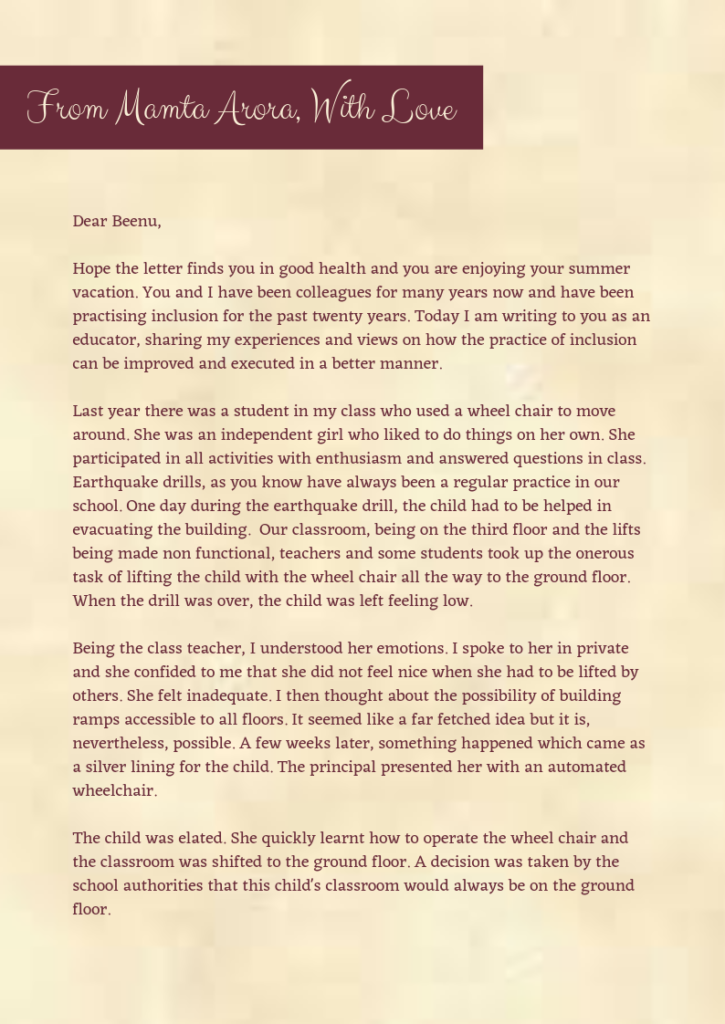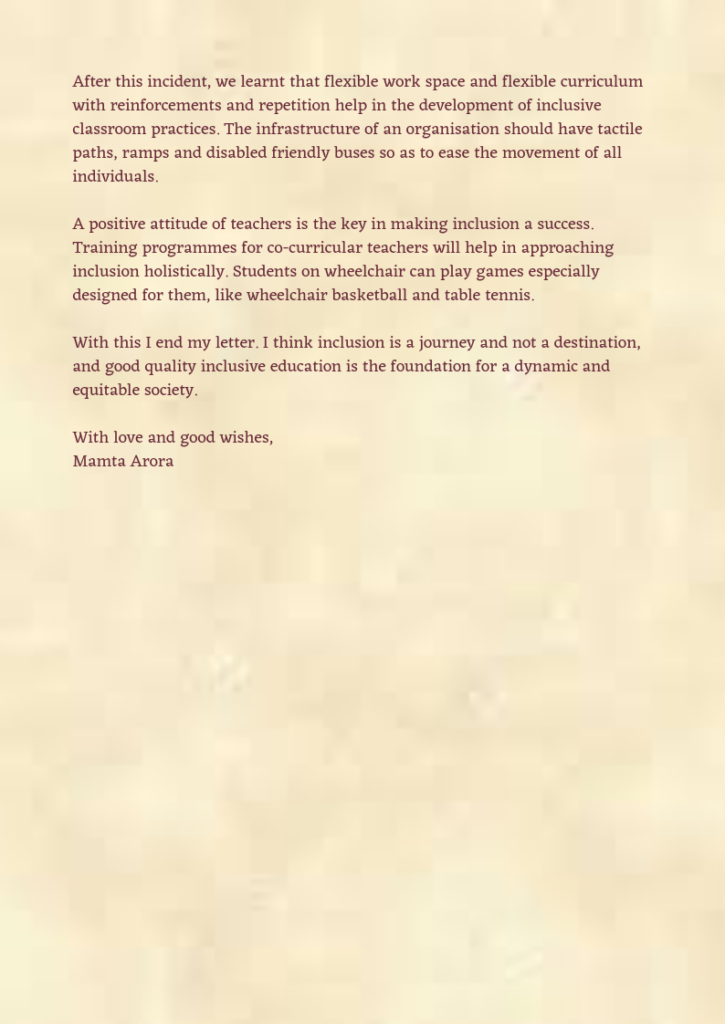

Dear Beenu,
Hope the letter finds you in good health and you are enjoying your summer vacation. You and I have been colleagues for many years now and have been practising inclusion for the past twenty years. Today I am writing to you as an educator, sharing my experiences and views on how the practice of inclusion can be improved and executed in a better manner.
Last year there was a student in my class who used a wheel chair to move around. She was an independent girl who liked to do things on her own. She participated in all activities with enthusiasm and answered questions in class. Earthquake drills, as you know have always been a regular practice in our school. One day during the earthquake drill, the child had to be helped in evacuating the building. Our classroom, being on the third floor and the lifts being made non functional, teachers and some students took up the onerous task of lifting the child with the wheel chair all the way to the ground floor. When the drill was over, the child was left feeling low.
Being the class teacher, I understood her emotions. I spoke to her in private and she confided to me that she did not feel nice when she had to be lifted by others. She felt inadequate. I then thought about the possibility of building ramps accessible to all floors. It seemed like a far fetched idea but it is, nevertheless, possible. A few weeks later, something happened which came as a silver lining for the child. The principal presented her with an automated wheelchair.
The child was elated. She quickly learnt how to operate the wheel chair and the classroom was shifted to the ground floor. A decision was taken by the school authorities that this child’s classroom would always be on the ground floor.
After this incident, we learnt that flexible work space and flexible curriculum with reinforcements and repetition help in the development of inclusive classroom practices. The infrastructure of an organisation should have tactile paths, ramps and disabled friendly buses so as to ease the movement of all individuals.
A positive attitude of teachers is the key in making inclusion a success. Training programmes for co-curricular teachers will help in approaching inclusion holistically. Students on wheelchair can play games especially designed for them, like wheelchair basketball and table tennis.
With this I end my letter. I think inclusion is a journey and not a destination, and good quality inclusive education is the foundation for a dynamic and equitable society.
With love and good wishes,
Mamta Arora
Click here to access other entries!

Beautiful message. Need of the hour, well explained.